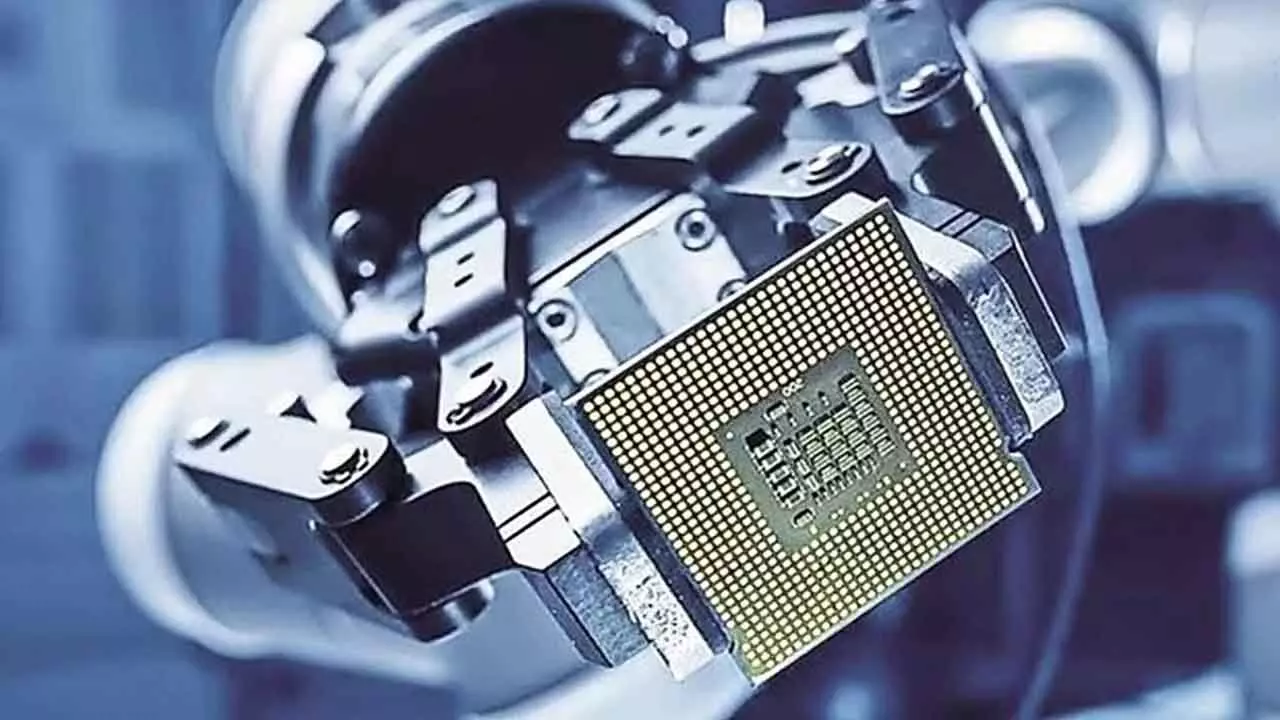Semiconductor Industry Hails AP’s Bold Initiative To Unveil New Policy
AP Semiconductors and Display Fab Policy 4.0 offers significant incentives, including subsidies and land, to attract investments
Semiconductor Industry Hails AP’s Bold Initiative To Unveil New Policy

Vijayawada: Terming the nod by the Andhra Pradesh Cabinet to an exclusive policy for the semiconductor industry, the Electronic Industries Association of India (ELCINA) said this will pave the way for making the State a hub for investments in the semiconductor sector.
A day after the Cabinet decision, ELCINA welcomed AP government’s Semiconductor Fab Policy 4.0 as a major milestone for India’s semiconductor industry. Such an exclusive policy has been adopted for the first time in any State, AP Information and Public Relations Minister Kolusu Parthasarathy, said during briefing on the Cabinet decisions.
ELCINA Secretary General Rajoo Goel told Bizz Buzz on Thursday that they laud the launch of the AP Semiconductors and Display Fab Policy 4.0, an initiative designed to attract investments in semiconductor fabs, OSAT, ATMP, and compound semiconductor sectors.
The policy announced a 30 per cent subsidy on behalf of the State to the manufacturers in addition to a 50 per cent capital subsidy being offered by the government of India. The policy also promises land and other incentives for employment generation. It has been proposed to attract FDI into the sector in designated areas like the Electronic Manufacturing Clusters (EMCs).
This policy is a significant step towards building a robust, self-sustaining semiconductor ecosystem within India and enhancing its position in the global semiconductor value chain. India's demand for semiconductor chips has seen unprecedented growth, spurred by the rapid adoption of electronic devices and technologies. With over 800 million active internet users and the expected expansion of 5G and Bharat Net’s rural broadband project, the number of connected users is projected to rise to 1.2 billion. This connectivity boost will fuel rising demand for smartphones, laptops, servers, and cloud services, he said.
Goel said the shift to electric vehicles (EVs) will further drive demand, as EVs require significantly more chips than conventional cars. At present, India imports over 90 per cent of its semiconductor needs, amounting to a spend of over $34 billion on semiconductor imports in FY24. As the country targets $500 billion in electronics manufacturing and $180 billion in exports by FY 2030, the importance of a resilient domestic semiconductor supply chain has become crucial. ELCINA estimates that India’s semiconductor market, valued at $27 billion in 2021, will grow to over $100 billion by 2030, with a robust CAGR of 16 per cent. The Andhra Pradesh Semiconductor Fab Policy 4.0 is an important step in addressing this demand and strengthening India’s semiconductor supply chains. ELCINA is confident that this policy will unlock transformative benefits for the industry, including increased investments, technology transfers, and innovation opportunities. ELCINA believes that this policy would foster collaborations with global companies and strengthen electronics manufacturing capabilities in the State of Andhra Pradesh which has excellent potential under the current dispensation. ELCINA has actively contributed to the semiconductor landscape through partnerships and industry initiatives, including a close collaboration with SEMI to create a comprehensive ecosystem focused on supply chain and workforce development. ELCINA is also a proud co-partner of SEMICON INDIA 2024, where we continue to drive growth and competitiveness in the sector. To further strengthen the industry, ELCINA has established a focused advisory group for semiconductors to spearhead its initiatives for the semiconductor sector.
"We look forward to supporting the successful implementation of this policy and advancing India’s progress toward a self-reliant, globally integrated semiconductor industry," Goel said.

